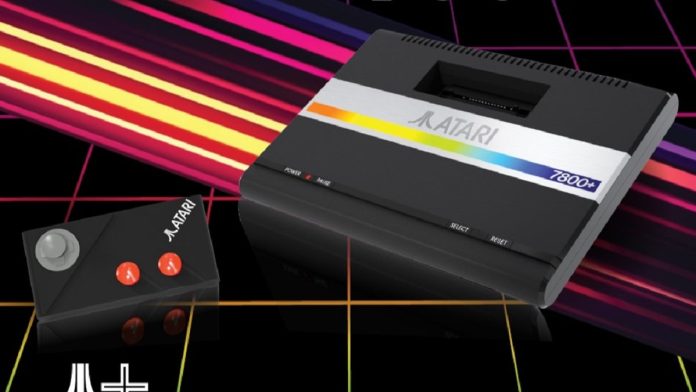Nostalgia for classic gaming consoles often lingers among retro enthusiasts, and Atari is keenly aware of this sentiment. With the release of the Atari 7800+ at Gamescom 2024, the company aims to capture the affection of those who remember the 1980s gaming landscape. This new console follows the success of last year’s 2600+ and continues Atari’s revival of its vintage hardware. While the 7800+ mirrors its predecessor in its ability to play original 7800 cartridges, it introduces modern features such as wireless controllers and enhanced backward compatibility with 2600 games.
Unlike the earlier GameStation Plus offerings from Atari and My Arcade, the $130 7800+ is a faithful reproduction of the original 7800 console. It is designed to play original cartridges from the 1986 system, providing a genuine retro experience. Although the 7800 had a relatively small library of just 59 official games, many of these were updated versions of popular arcade hits, including a notable adaptation of Nintendo’s Donkey Kong. The inclusion of 2600 game support remains a significant feature of the 7800+, preserving the legacy of its predecessor.
Atari’s strategy for reviving the 7800+ involves more than just retro appeal; it includes tapping into the creative potential of the gaming community. The new console will come bundled with Bentley Bear’s Crystal Quest, a homebrew game originally developed by Robert DeCrescenzo in 2014. This title, which gained a cult following, will now be officially available for the 7800+, offering a fresh addition to the system’s game library.
DeCrescenzo’s influence on the 7800 era extends beyond Crystal Quest. He was also instrumental in programming several classic titles, including Asteroids Deluxe, Space Duel, Frenzy, Berzerk, and the Atari 5200 game Bounty Bob Strikes Back. The latter, a sequel to the 1983 game Miner 2049er, is also receiving a new cartridge release for the 7800+. Atari will offer ten additional cartridges separately, though this does not include the existing 2600+ games, which are available individually for $30 each.
The 7800+ features modern conveniences such as compatibility with widescreen and 4:3 aspect ratios, accommodating contemporary televisions while allowing gamers to experience their classic titles in a format that suits their preferences. While it retains the classic dual-controller ports from the original, the 7800+ comes equipped with a single CX78+ gamepad featuring wireless functionality. For multiplayer sessions, users will need to purchase an additional wireless gamepad or the new CX40+ wireless joystick for $35.

Despite its innovative features, the 7800 lacks the legendary status of its predecessor, the Atari 2600. However, it holds a unique place in gaming history as a product emerging from a tumultuous era for the industry. Released three years after the significant video game crash of 1983, the 7800 was designed with stricter quality controls. Atari required developers to submit their games for pre-approval to avoid the issues that plagued the market during the crash.
The timing of the 7800’s release in 1986 coincided with the debut of the Nintendo Entertainment System (NES), a major factor in the 7800’s overshadowing. The NES quickly became the dominant force in the gaming industry, partly due to its strong lineup of platformers that included the immensely popular Super Mario Bros. The 7800 struggled to compete and, despite its innovative features, could not keep pace with the competition.
Atari’s decision to eventually cease support for the 7800 in 1992 marked the end of an era for the console. The system, despite its promising design and features, was unable to secure a lasting place in the competitive gaming market of the late 1980s and early 1990s. Nevertheless, the 7800 remains a cherished relic for many retro gaming enthusiasts, who will likely appreciate the opportunity to revisit it through the new 7800+.
In essence, the Atari 7800+ represents a blend of nostalgic reverence and modern innovation. It offers gamers the chance to relive the past while enjoying updated features that enhance the retro experience. By integrating classic games with contemporary technology, Atari hopes to bridge the gap between old and new, appealing to both longtime fans and curious newcomers alike.



 Viesearch - The Human-curated Search Engine
Blogarama - Blog Directory
Web Directory gma
Directory Master
http://tech.ellysdirectory.com
8e3055d3-6131-49a1-9717-82ccecc4bb7a
Viesearch - The Human-curated Search Engine
Blogarama - Blog Directory
Web Directory gma
Directory Master
http://tech.ellysdirectory.com
8e3055d3-6131-49a1-9717-82ccecc4bb7a